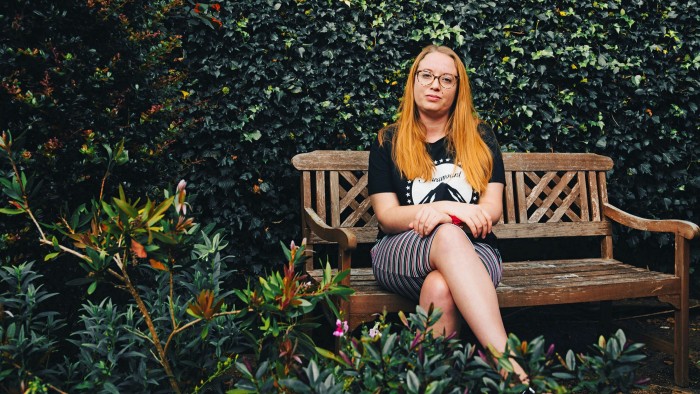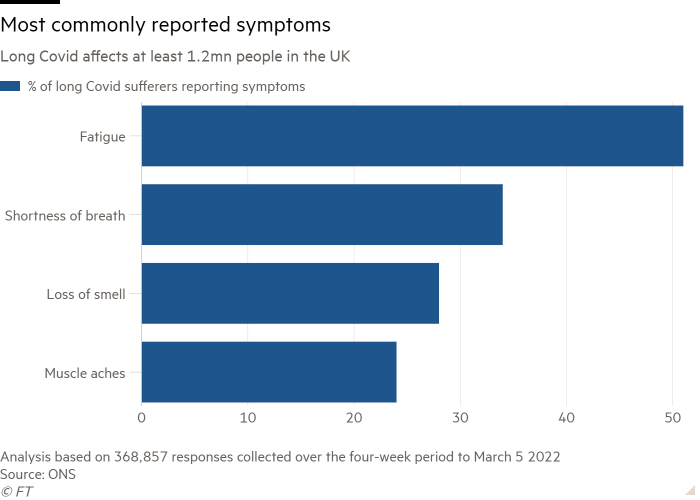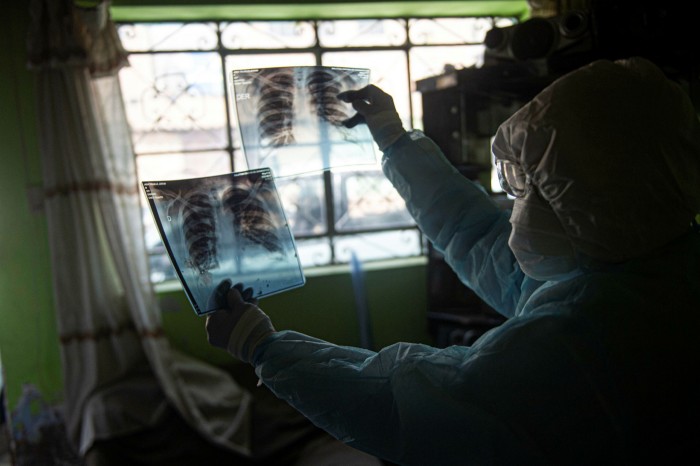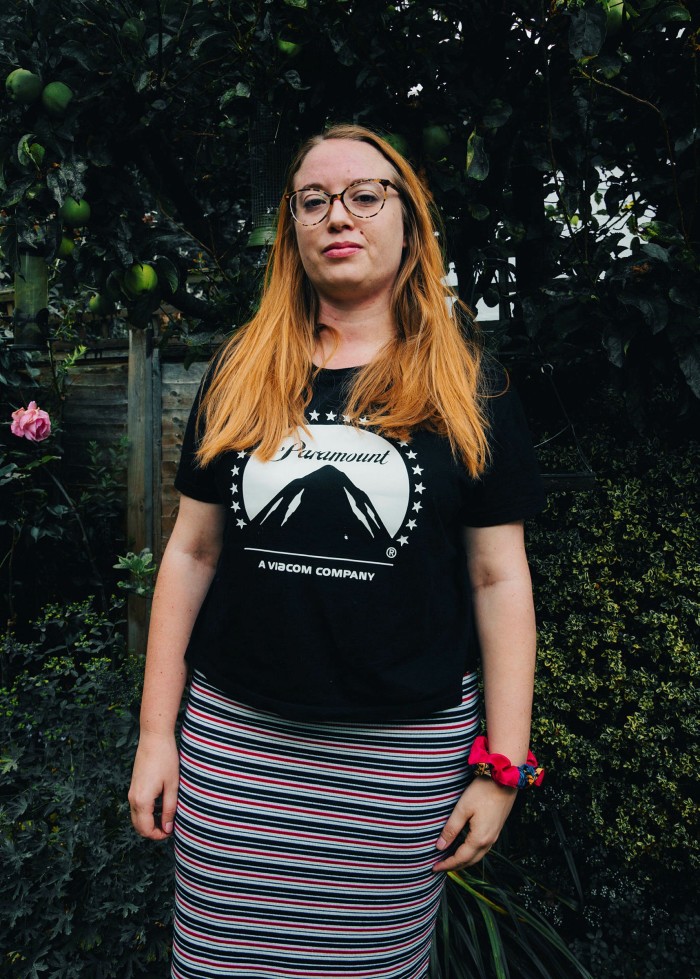Long Covid researchers work ‘round the clock’ to solve the puzzle

Roula Khalaf, Editor of the FT, selects her favourite stories in this weekly newsletter.
Amy Durant had her first appointment at an NHS long Covid clinic in July — 16 months after falling ill with the disease. But the 10-minute consultation offered her little in the way of reassurance.
Since a seemingly mild bout of coronavirus last year, which did not land her in hospital, the 32-year-old book editor from Surrey in the UK has spent weeks in bed, taken months off sick from work, and grown increasingly doubtful that she will ever fully recover.
Durant is among more than 380,000 long Covid sufferers in the UK who have grappled with the disease for more than a year, according to the Office for National Statistics (ONS). Different official studies suggest anywhere between 3 per cent and 37 per cent of people infected with Covid-19 have persistent symptoms for at least 12 weeks.
“I feel stuck,” says Durant, who is worst affected by the hallmark symptoms of breathlessness, brain fog and fatigue. “My body is constantly in fight mode and I need some way of switching that off, but [scientists] obviously haven’t found what that is.”
For the medics given the task of diagnosing and treating long Covid, the condition has often left them with as many unresolved questions as their patients. A study, published in the Lancet, identified 203 symptoms associated with the illness affecting almost all of the body’s 11 organ systems.
“It’s definitely not as bewildering as it was at the beginning, but it’s still very much a puzzle,” says Melissa Heightman, a respiratory consultant who heads up the UK’s longest-running post-Covid clinic based at London’s University College Hospital.

Health authorities worldwide are pouring vast sums of research funding into the disease, offering hope that some of the secrets of long Covid will soon be unlocked.
The UK’s National Institute for Health Research has spent £50m on studies into long Covid, while the US National Institutes of Health have pledged a total of $1.15bn in research funding over the next four years.
A team led by Heightman is carrying out the largest study of its kind on more than 4,500 Covid long-haulers who were never admitted to hospital. It will analyse diagnostic tests, such as MRI scans, look at the effectiveness of at least three existing drug treatments and monitor patients’ rehabilitation through a symptom-tracker app.
More stories from this report
Covid raises bar for infectious disease crisis response
HIV treatments advance but vaccine remains ‘a long way off’
Covid spurs expansion of public healthcare
Governments fall behind in race to stem antimicrobial resistance
How data can help prepare us for the next pandemic
Controversial virus research sparks political debate in US
Budget cuts hinder efforts to eliminate neglected tropical diseases
“What’s been really disconcerting is the sheer number of young patients in their 30s and 40s who were previously fit and well and, despite initially mild acute illness, have had their life derailed by this condition,” says Heightman.
Steven Deeks, professor of medicine at the University of California, San Francisco, who studies long-haul Covid, thinks this particular cohort of patients “are likely to have an answer to the fundamental riddle” of the condition.
There are different “buckets of symptoms”, says Deeks, which researchers are trying to delineate, looking at hospitalised and non-hospitalised patients, for example. The next step is to analyse the different symptom clusters, which span from heart and lung issues to neurological problems to hormone complications. “Long Covid is a catch-all term for multiple mechanisms,” says Deeks.
“We will begin to see from the studies what the biology at play is: some patients will have regular tissue damage, some patients will suffer from an inflammatory disease and some may have had an autoimmune reaction,” he says.

Whether the vaccines protect against long Covid, given the “breakthrough” infections seen among those who have been double jabbed, is also being explored. “As Covid becomes endemic, this becomes the most important question of all,” adds Deeks.
In a recent positive development, the team behind the UK’s Zoe Covid tracker app found that the odds of a fully vaccinated person who falls ill with Covid facing persistent symptoms for longer than four weeks were cut in half. Between December 2020 and July this year, only 5 per cent of 592 double-jabbed people with Covid had symptoms after four weeks, compared with 11 per cent among 2,762 unvaccinated individuals who tested positive.

Researchers are also probing whether vaccination may provide a cure for long Covid. Anecdotal accounts suggest about 30 per cent of sufferers experience an improvement in symptoms after being vaccinated, while about 15 per cent see their symptoms worsen, according to Akiko Iwasaki, a professor of immunobiology at Yale School of Medicine.
“The vaccine generates robust antibody and memory T-cell immunity against the spike protein so, if that’s changing the symptoms of long Covid, we can get a better sense of how to help people,” Iwasaki explains — adding that her team and others are “working around the clock” to understand the pathology of long Covid.
For Durant and the millions of long Covid sufferers globally, whose symptoms have refused to clear up, a solution cannot come soon enough.
“There does seem to be some breakthroughs, but obviously these things take time,” says Durant, “and by the time that trickles down to patients, you wonder how long it will be.”
Comments